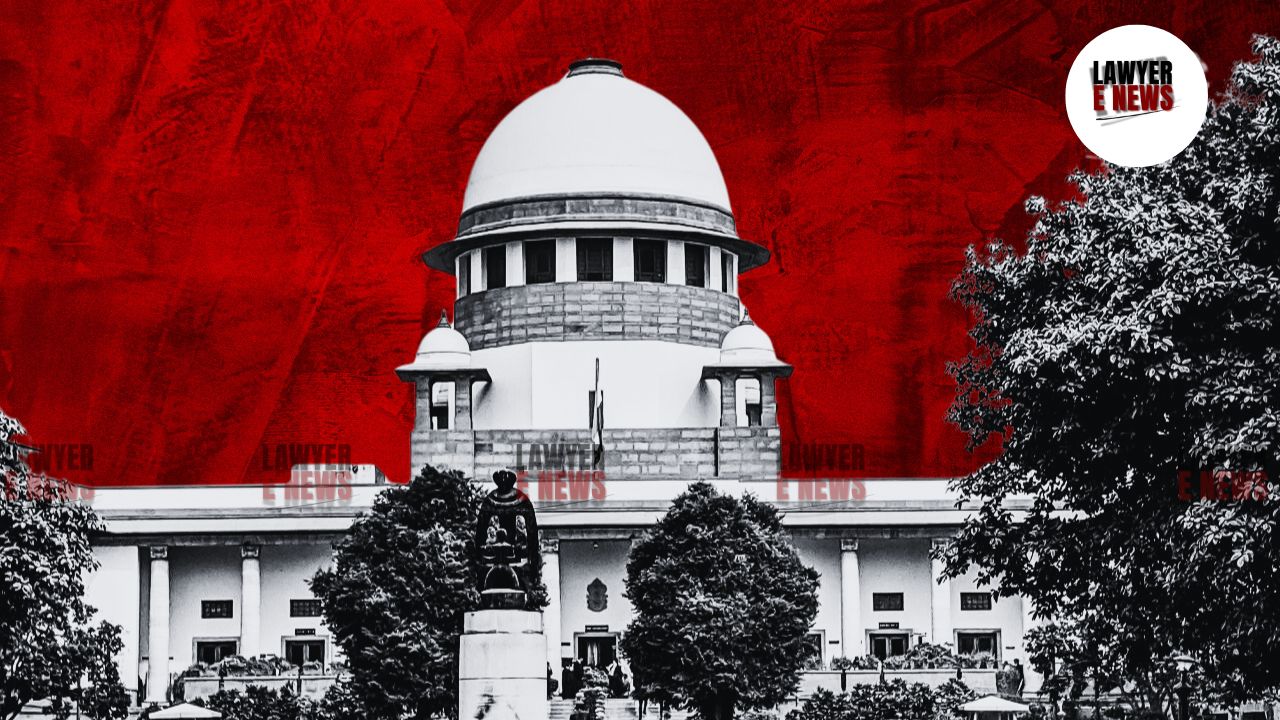-
by Admin
16 February 2026 1:47 PM



Circumstantial Evidence Must Lead to Only One Conclusion—Mere Suspicion, However Strong, Is No Substitute for Proof: Supreme Court of India in Murugan v. State, Criminal Appeal No. 3318 of 2023, acquitted a man convicted for the murder of a Special Branch Constable who died while allegedly pursuing a sand smuggling vehicle. Holding that the prosecution’s case rested on a broken chain of evidence, the Court emphasized that mere suspicion, delay in FIR presentation, and disbelieved key witnesses are insufficient to sustain a conviction under Section 302 IPC.
The Court declared:
“When the backbone of the prosecution collapses—its star witnesses disbelieved, confessions ruled inadmissible, and FIR delayed without justification—the accused cannot be held guilty on weak circumstantial remnants.”
“In Circumstantial Cases, Doubt Must Lead to Acquittal—Proof Must Be Unbroken and Incontrovertible”
The case concerned the death of Constable Jagadeesh Durai on May 6, 2018, while allegedly pursuing illegal sand transporters on his motorcycle. The appellant, Murugan
(A1), along with others, was accused of murder. The Trial Court convicted him under Section 302 IPC and sentenced him to life imprisonment. The Madras High Court upheld the murder conviction, leading to the present appeal.
But the Supreme Court took a sharply different view.
“The learned Single Judge of the High Court ignored that its own judgment disbelieved the eye-witness and extra-judicial confession—yet convicted the appellant on shaky ground. Such selective reliance is legally impermissible.”
“Last Seen Witness Appears 17 Days Later—Delay in Disclosure Casts Serious Doubt”
Key prosecution witness PW12, who claimed to have seen the accused driving the sand-laden tractor-trailer while the deceased chased them, had not revealed this to police for 17 days despite being present during the postmortem of the deceased.
The Court questioned: “A person who knows the deceased, witnesses the incident, and accompanies the body for postmortem but stays silent for 17 days — can his testimony be trusted?”
It answered with emphasis:
“The last seen evidence, therefore, does not command any credence which could be made the sole basis for holding the appellant guilty of murder.”
“FIR Delay Weakens Credibility—Transfer of Magistrate Not Substantiated”
Though the FIR was registered the next morning, it reached the Magistrate only at 3:30 PM, and the prosecution cited the Magistrate’s transfer as the reason.
The Court noted:
“No evidence of the Magistrate’s transfer was brought on record. Both the constable and clerk admit that FIRs in Section 302 cases are sent immediately. The delay casts doubt on the prosecution version.”
“Sand Theft Story Crumbles—No Sand Found in Vehicle, No MMDR Charges Filed”
The prosecution claimed the constable was chasing illegal sand smugglers, yet: No sand was recovered from the tractor-trailer. No case was registered under the Mines and Minerals Act.
The Court observed:
“The very basis of the prosecution’s story — that the deceased was chasing sand smugglers — is rendered doubtful in the absence of any sand or corroborating criminal complaint.”
“Chain of Circumstances Must Be Unbroken—Suspicion, However Strong, Is Not Evidence”
Quoting from Karakkattu Muhammed Basheer v. State of Kerala, the Court reiterated:
“Suspicion alone, irrespective of its strength, cannot substitute for proof. The chain of circumstances must be so complete that they lead to only one conclusion — the guilt of the accused.”
“When a missing link exists, a finding of guilt cannot be recorded.”
The Supreme Court concluded:
“The conviction under Section 302 IPC is unsustainable. The appeal is allowed.
The appellant shall be released forthwith, if not required in any other case.”
Date of Decision: April 4, 2025
